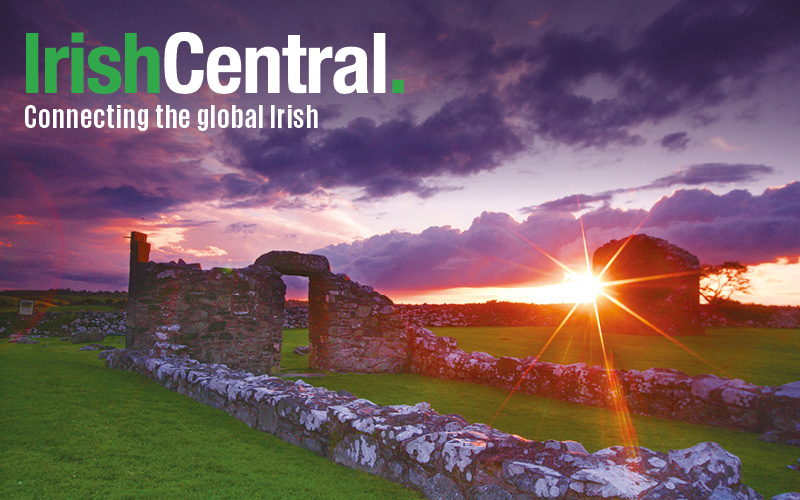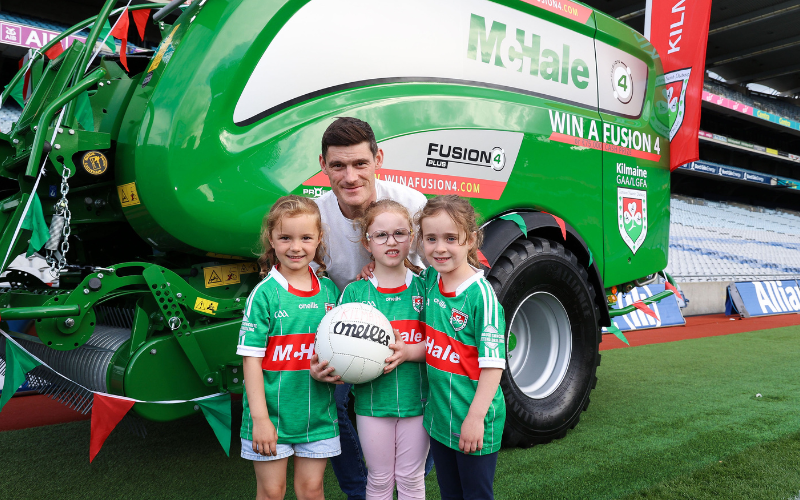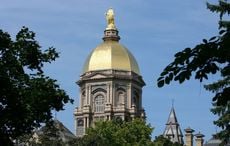Maureen Mitchell is President of Global Sales and marketing at GE Asset Management. She was the keynote speaker at the inaugural Irish America Top 50 Power Women awards. Here is her incredibly inspiring speech. To read the feature interview with her, click here.
There’s an old Irish expression I love: “What’s bred in the bone will come out in the marrow.” It’s what comes to mind as I contemplate this group of extraordinarily accomplished Irish and Irish American women, in whose company I am deeply honored to stand.
Irish women are natural leaders. It’s in our DNA, our history, our mythology, our literature, our politics. My fellow speaker, Ambassador Anne Anderson — Ireland’s first female representative to the UN, to the EU, to France, and now to the United States — is a perfect embodiment of this.
That fearlessness, that resilience, that independence which characterize Irish women are part of our core. They’re bred in our bones.
When I look back on my own mother’s solo journey to America — which mirrored that of so many other Irish girls in the last century, traveling to a new world, never expecting to go home again — that’s what I see. Strong, fearless women.
It takes no small degree of courage to undertake this kind of venture — from hardship and striving, through risk and uncertainty, to finally creating a stable family setting, then making room for the next generation. It takes leadership. It takes the ability to handle change, to pivot, to roll with the punches.
Women’s entire lives are about change — physical, emotional, situational. If you are a mother, you understand change. You understand crisis. You understand nurturing, listening. You understand exhaustion! You understand the fundamental unpredictability of life.
Irish women have a special kind of strength and toughness — muscles accumulated from centuries of determination, of facing down adversity. It’s a kind of connective tissue that links us across the generations, the globe, and the centuries.
And I believe it links all of us present here today.
Women are valued in Irish families. Mine was no exception. Ours was a traditional, working class family in Manhattan. My mother came from Galway, and my father from Sligo, although they met here. My father worked for the NY Transit Authority, while my mother ran our house — like the general she was always meant to be.
Both my parents had a very steady hand, and instilled in me and my brother and sister a set of expectations around industriousness, conduct — and helping others — that were crystal clear. Our chores, our responsibilities, our sense of duty. All of these, I think, gave us a sense of self, a sense of place — just as they had given my parents, and so many other immigrants, a sense of continuity as they made their way in this new world.
These virtues were the backbone of my own determination to work hard. And although my mother and father would most certainly not recognize the professional environment I inhabit today — in a very real way, I stand on their shoulders.
This is the American story, the story of immigration that continues to enrich our nation. But it is also, in very specific ways, an Irish story. A story of fortitude and strength to overcome obstacles. It’s in our marrow.
I’ve been given so much by my heritage, my parents, and by wonderful, generous mentors, both men and women, along the way. People like Maureen Bateman and Dmitri Stockton. They have shown me what a difference one person can make at a key point in another person’s life — and inspired me to “pay it forward” in turn.
If I stand here today it is not just because of my hard work or even my good fortune. It’s also because of them.
This is a story that continues through the perspectives and accomplishments of each successive American generation.
The beauty of immigration is that it ripples, paying dividends to our country for decades, centuries even. Immigration is woven into America’s DNA. It is a necessary part of our greater whole. It renews and completes us, generation after generation.
And speaking of generations, I can state honestly that no two people have taught me more than my daughters, Fiona and Megan — two more strong, independent, accomplished Irish American women. To see them make their own decisions, and thrive on their own terms — just as I tried to do at their age — has been the greatest reward of my life. And I am so proud of them.
Fiona is a pediatric neurologist completing a fellowship at Stanford, now expecting her own first daughter. Megan is a zoologist at the Ft. Worth Zoo. So they got the science genes! Neither could be with me today, Fiona is home “growing a baby” as we say, and Meg is running part of a zoo.
The girls tease me sometimes about my own experience growing up Irish American. But then I realize that’s because their experience has been so profoundly different than mine — as different in a way as mine was from my mother’s. And as different as their daughters’ experiences will be from theirs.
I note with satisfaction that their own sense of place in the world, their own sense of belonging, has been larger, deeper, more confident than mine — although I’m not sure if they really know to what extent they’ve benefited from the experiences of their forebears.
I think my daughters just assumed, from watching me, that you could do or be whatever you wanted to do or be — if you were willing to work hard enough, and had the intellect, and applied it.
Perhaps that’s the truest measure of the success of those who came before us.
That’s what you want for your children; especially as a child of immigrants. That’s where the great hope lies. The promise in the heart of so many of our humble Irish ancestors — bred in the bone, still there in our marrow.
I thank you again for this honor.




Comments